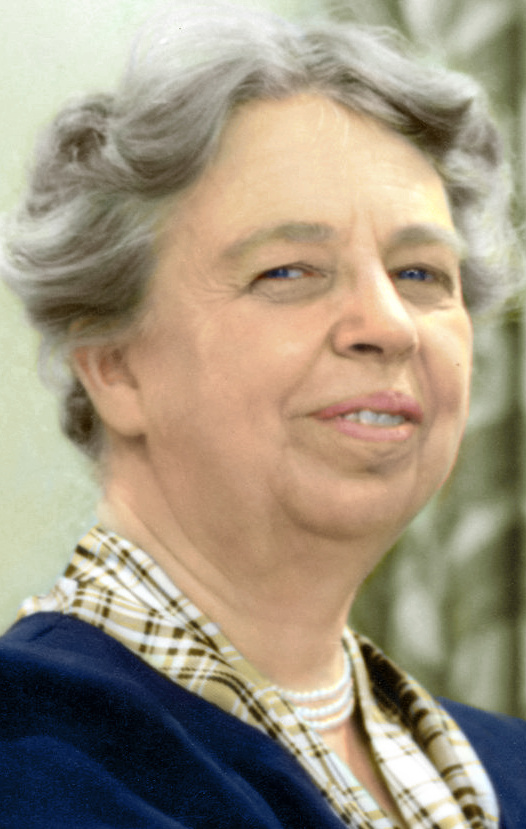
MY DAY
By Eleanor Roosevelt
January 1, 1943
Washington – (Thursday)
This is New Year’s Eve and all of us with an old-fashioned background are thinking about our New Year’s resolutions. I imagine, this is a year when there are a good many resolutions being made by all of us.
My first resolution would be to try to keep my attitude toward life as cheerful as possible in these serious times. There are so many things that force seriousness upon us and so many people who, for one reason and another, face tragic situations which cannot be ignored, that wherever it is possible, those of us who may bring a cheerful spirit to life, should do so.
It is impossible to suggest that we change our whole attitude and become as stoical as the British people, but I think we might take a leaf out of their book and learn to accept the inevitable with as little comment as possible. We know that, as civilians, we are going to feel more and more the shortages brought about by war.
Every now and then some irritated person writes me calling this war either the President’s war or the Roosevelt war. Of course, it is both, because it is everybody’s war in a greater measure than any war has ever been before.
The whole world is involved in this war and whether you belonged to America First, or believe in the Nazis and the Fascists, you are nevertheless now involved in it. You, irritated letter writer, did your best to stay out of it; perhaps you were willing to accept Hitler and Hirohito domination. If you were, you contributed to the delay in fully preparing for the war. Nevertheless, you suffer with us today and you will in the future, and the sooner we all put our shoulders to the wheel, realizing that we are no longer an isolated nation, but part of a family of nations, the sooner we shall meet conditions where our New Year’s resolutions may be concerned with normal life.
At the National Christmas Service this year, the Reverend Howard Stone Anderson, in preaching his sermon, read us a jingle which his elderly mother sent him. I think it well illustrates the attitude of mind in which we should approach our New Year’s resolution. Here are some lines from it:
'Twas the night before Christmas, and all through the house
The only one able to stir was a mouse.
The rest of the family, from papa on down,
Were soundly asleep after hiking from town.
There was Sis in her WAAC suit, and Bud wearing wings,
Reminding us gravely of war’s bitter stings;
But old Santa, that jolly American elf,
Said “We won’t let them put Uncle Sam on the shelf!”
And I think he exclaimed, though my hearing is hard,
“Happy Christmas to all, and to all a ‘B’ card.”